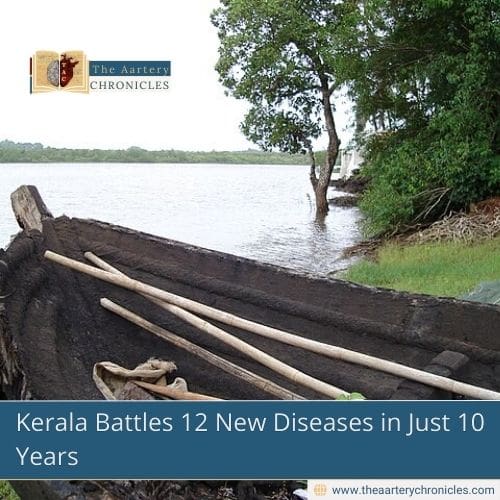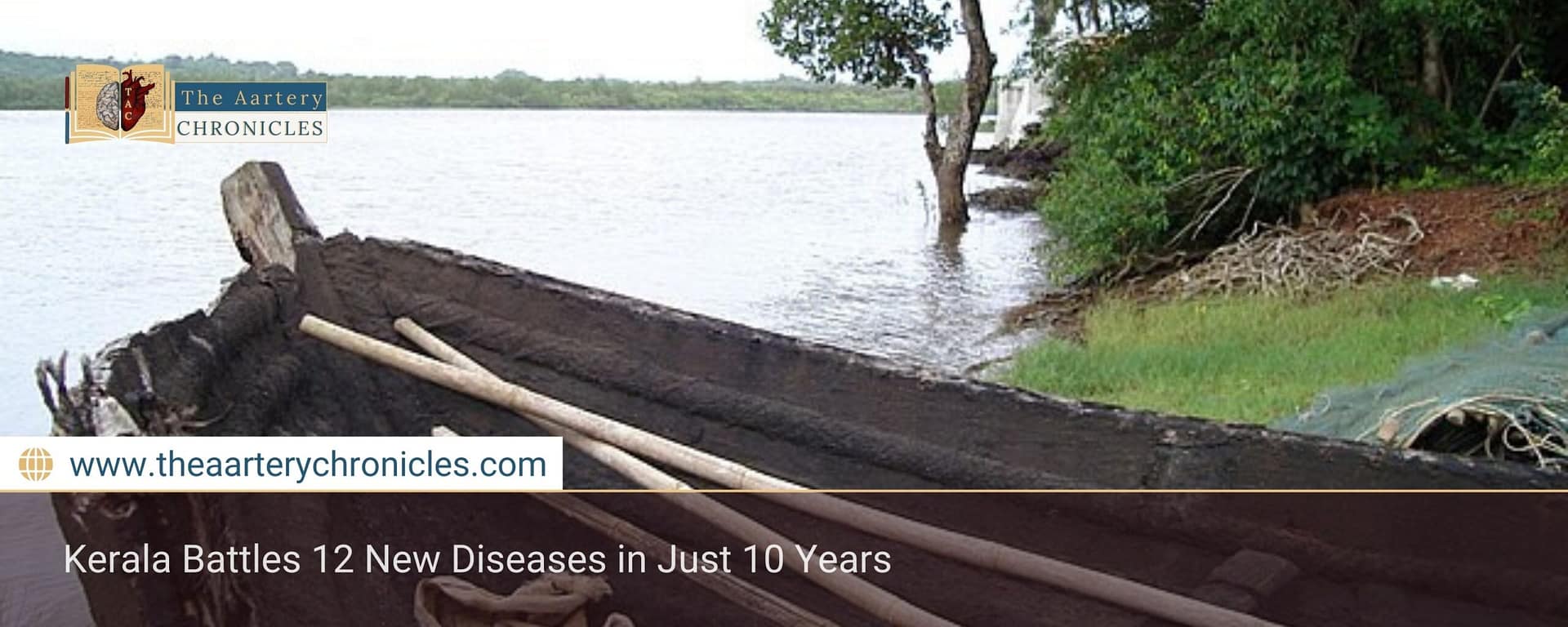

Kerala Battles 12 New Diseases in Just 10 Years
Kerala is facing a communicable disease overload, with the number of reported illnesses rising sharply from 13 in 2011 to 25 in 2025. This rapid increase highlights poor public hygiene, climate change, and growing human-animal interaction as major triggers behind the state’s health crisis.
Hepatitis Outbreak Changed Village Life
For the residents of Choorathodu village in Ernakulam, daily life changed forever after a severe hepatitis outbreak in April last year. The disease infected more than 300 people and claimed three lives.
Nicy, a young mother of three, still fears for her six-year-old son Erizal, who was hospitalised for 18 days with jaundice. His weakened immunity and new health complications have left the family anxious. “We used to drink directly from the tap. Now I boil water daily and ask my children to drink only boiled water,” she explained.
Many families in the area have adopted similar practices. Some even avoid drinking lime juice from local shops, fearing contamination.
Lack of Public Hygiene Behind Outbreaks
Health experts point out that Kerala’s growing list of diseases is strongly tied to poor sanitation and unsafe water sources. In Choorathodu, health officials found the hepatitis outbreak was linked to water from a damaged pipeline that was mixed with canal water.
Former footballer Jinson Reji, once part of Kerala Blasters’ training squad, is among those still struggling with the long-term effects. “Even months later, I get tired quickly and can’t play football. The medical expenses drained my family financially,” he said.
Rise in Mosquito-Borne and Waterborne Diseases
In the last decade, 12 new communicable diseases have been added to Kerala’s list, including Nipah, Zika, Scrub Typhus, West Nile, and rabies. Six of these are spread by mosquitoes, while eight are caused by contaminated water, food, and waste.
Other illnesses like dengue, leptospirosis, and diarrhoea are also increasing every year. Experts warn that climate change has made conditions worse by allowing parasites, mosquitoes, and other carriers to thrive in Kerala’s tropical environment.
Climate Change and Human-Animal Interaction
Doctors note that rising temperatures, contaminated water bodies, and closer contact between humans and animals are driving the communicable disease overload in Kerala. For instance, amoebic meningitis cases are increasing because warmer surface water supports amoeba growth. Similarly, Nipah outbreaks have been linked to humans encroaching on bat habitats.
Kerala’s Nipah nodal officer, Dr. Anish T S, stressed that boiling drinking water is still the safest method to prevent many infections. Filters are not as effective as boiling water. A hepatitis outbreak in Malappuram school proved this when students switched from boiled water to filtered water,” he said.
Experts Call for Policy Shift
Despite rising cases, Kerala’s health system continues to focus more on treatment than prevention. Most government spending still goes toward building hospitals rather than tackling the root causes of disease.
“Leptospirosis cases rise every year because of garbage mismanagement and waterlogging. Unless prevention becomes a priority, this crisis will only worsen,” said Dr. V Ramankutty of Amala Institute of Medical Sciences, Thrissur.
Local residents also echo this concern. In Varapuzha, blocked culverts and poor drainage left 79 families trapped indoors for months due to waterlogging. “We couldn’t step outside, fearing leptospirosis from stagnant water. This is not just an inconvenience; it is a health hazard,” resident C B Shanmughan explained.
Conclusion
Kerala’s rising disease burden shows that health crises are no longer just about hospitals and medicines. Safe drinking water, waste management, mosquito control, and vaccination are equally critical. Unless the state strengthens its prevention-oriented health policy, the challenge of communicable disease overload will continue to threaten public health.
Source: Inputs from various media Sources

Priya Bairagi
Reviewed by Dr Aarti Nehra (MBBS, MMST)
I’m a pharmacist with a strong background in health sciences. I hold a BSc from Delhi University and a pharmacy degree from PDM University. I write articles and daily health news while interviewing doctors to bring you the latest insights. In my free time, you’ll find me at the gym or lost in a sci-fi novel.








